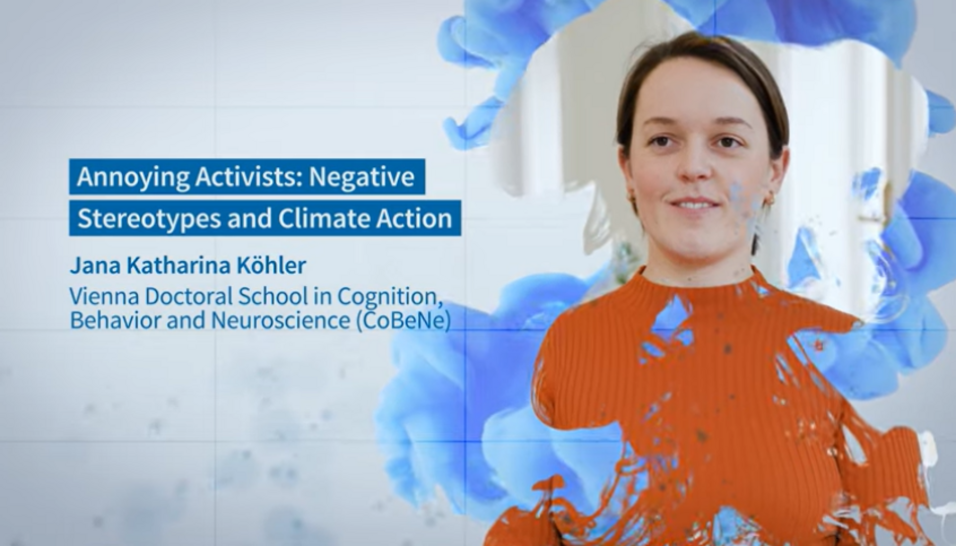Jana Köhler is a doctoral candidate at the Vienna Doctoral School in Cognition, Behaviour and Neuroscience (VDS CoBeNe), studying societal perceptions of environmentalists and environmental activists.
"We can only have a healthy planet and healthy people if we start protecting the climate and the environment," says Jana Köhler. By investigating human experiences and behaviours, she is making important contributions to her discipline "Environmental Psychology," which falls under the behavioural sciences.
To learn more about her research, please visit the provided link. You can also check out the article about her dedication for a helathier planet here!

